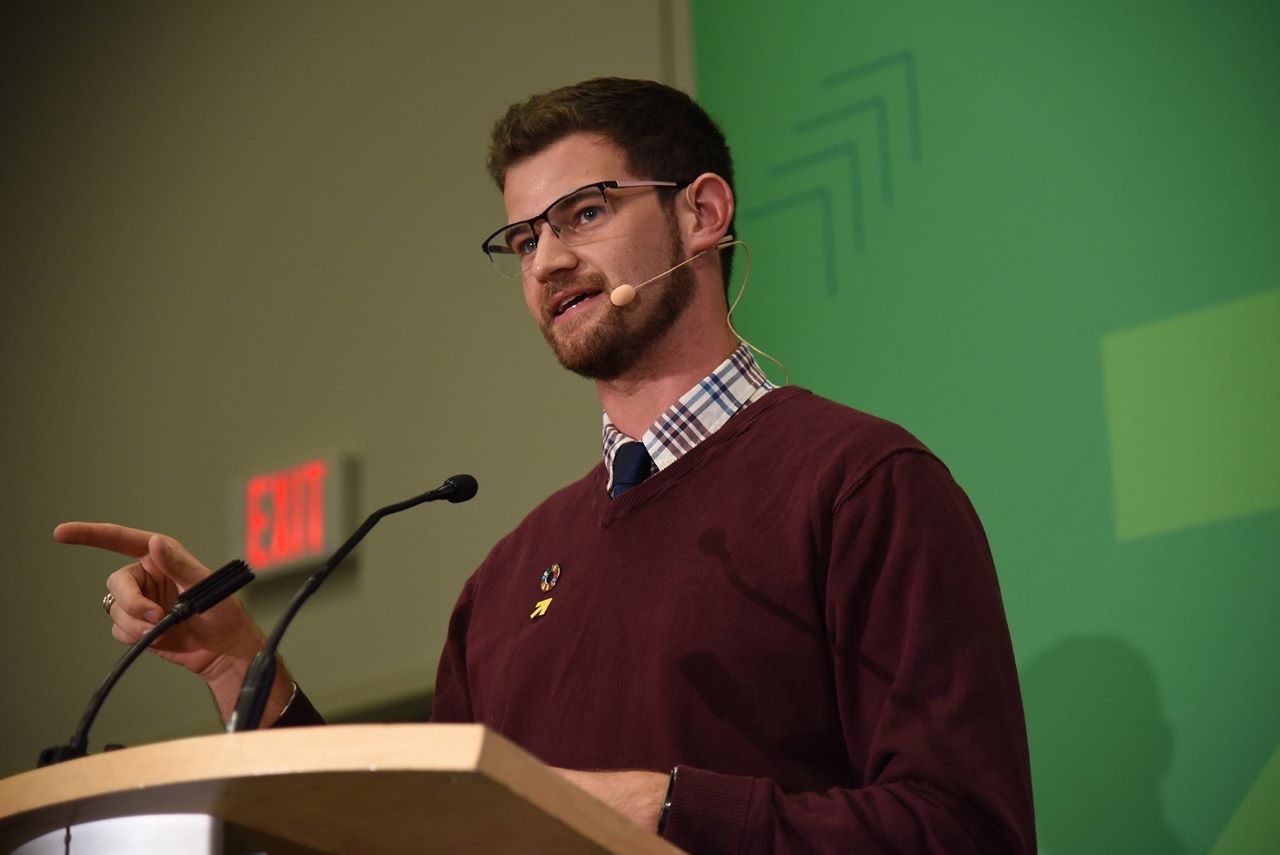The new world of work requires young people to enter adulthood “career ready.” They must have the strong foundation of knowledge, skills, and capabilities needed for work in the 21st Century. Having these skills, along with life skills like self-confidence and leadership, will empower them to make meaningful contributions in their respective pathways.
Participation in FIRST allows young people to build these critical skills through an expanded team structure that allows them to experiment with jobs and tasks and find where they truly excel. In partnership with a network of corporate sponsors, FIRST helps to prepare today’s youth for the future of work. In celebration of National Engineers Week, we are highlighting a series of FIRST alumni who are leveraging these transferrable skills as engineers in the workforce today.
Ben Romano works for DePuy Synthes, the orthopedics company of Johnson & Johnson, as a Process Engineering Team Lead. Johnson & Johnson is a long-time sponsor of FIRST. We sat down with him to learn more about how he is using the skills honed through his FIRST participation in his current role.
How/when did you become involved with FIRST?
I joined my local FIRST Robotics Team as a freshman in high school. I was on Team 75: the RoboRaiders out of Hillsborough, NJ. I was on the team for four years and held a variety of roles including Electrical Sub team Manager, Chairman’s Presenter, and Team Vice President. After I graduated from college, I started working with Johnson & Johnson and was a mentor for three teams that we supported in the area, including my old team. After that, I took on some leadership roles within Johnson & Johnson and now lead our enterprise-wide efforts with FIRST Robotics across the country and around the world.
How did your participation in FIRST influence your post-graduation career/education choices?
I had always loved math and science, but FIRST showed me how to find an outlet for that passion. When you’re just learning about the different educational and career paths that exist, it can be hard to match what you’re learning in the classroom to a potential career. FIRST gives you an amazing opportunity to see firsthand what the “real world” looks like. Before my time on a FIRST team, I didn’t really know what an engineer did. All I knew was that people who like math and science went into engineering. After my FIRST experience, I not only knew what engineers did – I was an engineer myself! I went on to graduate from college with degrees in Chemical Engineering and Biochemistry from Virginia Tech and haven’t looked back since.
What skills did you gain through FIRST that you currently use as an engineer?
One of the most important things I learned from FIRST was how important your interpersonal skills are. I’ve seen some of the smartest engineers I know struggle with many of the skills that FIRST students have to practice nearly every day. As an engineer, your success almost entirely depends on your soft skills – like being able to work in teams and communicate your results. It’s like you see on the field at a competition. Sometimes the best robot can be overpowered by an alliance that works in perfect harmony.
Who was/is your biggest role model in the world of engineering?
To this day, the mentors I worked with as a student on my FIRST team are still my mentors and role models in my professional career. I was lucky enough to work with a few of them when I entered the workforce, and they helped me become the engineer I am today. Even though many of them are retired now, I still call them up every once in a while to catch up and ask for advice. They’ve had a huge impact on me, and I’m incredibly grateful for everything they did and continue to do.
How would you describe your job as an engineer?
I’ve been able to work for Johnson & Johnson in several roles, helping support manufacturing across several different brands. I’ve worked on everything from Listerine® mouthwash to Acuvue® contact lenses, but I’m currently working for our orthopedics company, DePuy Synthes, as a Process Engineering Team Lead. My team’s job is to make sure our plant can keep running, so whenever we have equipment down or raw material shortages, my team has to come up with solutions to get us back up and running as quickly as possible. It’s not that different from a pit at an FRC Competition! There’s never a dull moment! My favorite part about working as an engineer for Johnson & Johnson is knowing that the products we make impact over a billion people every day. We’re helping people walk again, recover from cancer, and live their best lives. It makes every day that much more meaningful.
What would you consider to be some common misconceptions about engineering or the actual jobs that engineers do?
I think that one of the most important things young engineers need to know is just how versatile an engineering education can be. A lot of the time, when students are entering college, they think they’re choosing a career that’s going to last them a lifetime. But you’ll quickly find that you can take your engineering mindset and apply it to nearly any problem. You can be successful in nearly any other field if you apply the same methodical approach you take in engineering. You can (and should!) take every opportunity to exercise your engineering skills in non-engineering fields. This will actually make you a better engineer because you’ll start to understand how the other areas of your business impact the decisions you make. A versatile engineer who understands the other parts of a business will be extremely successful!
